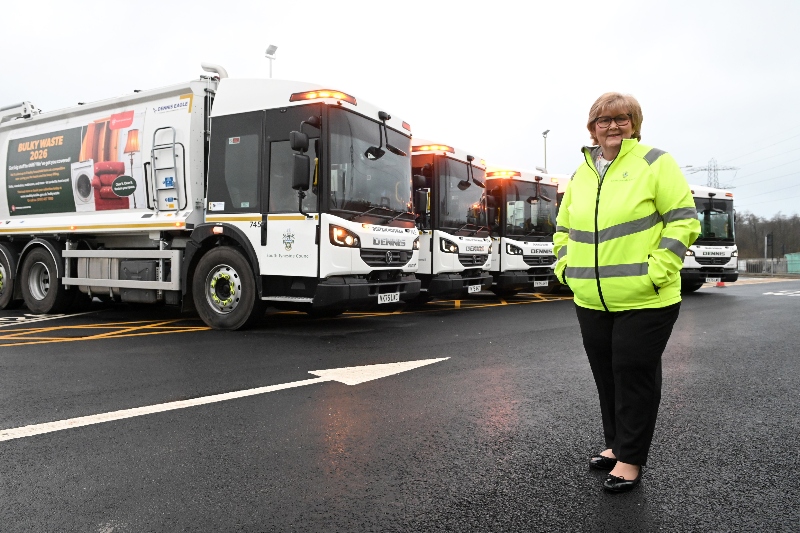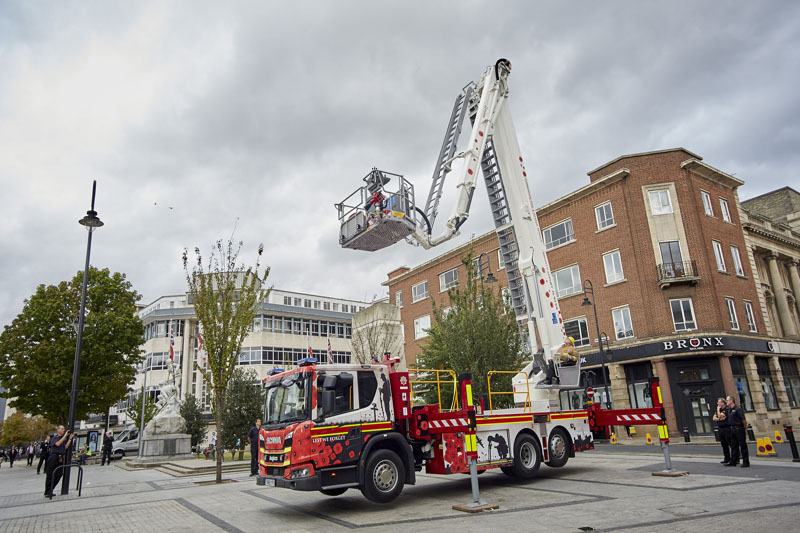The senior traffic comissioner is busy pointing out the professional duties of transport managers. But after years of erosion of our resources, the ability of many to meet these expectations is questionable, so it's time for us to dig our heels in, writes Phil Clifford.
Those of us that operate under the auspices of an Operator's Licence should be fully aware of the Statutory Guidance provided by the Senior Traffic Commissioner. The current guidance documents are dated 2013 but in August, the Senior TC published a consultation aimed at updating the wording.
The guidance is covered in 15 documents but the most significant one of these is No 3: transport managers!
If you haven't read this document, I recommend that you do so as there are some significant amendments relating to the role of transport manager. Allow me to highlight a few.
Paragraph 25 starts with: 'A transport manager must always be more than just a transport manager in name'. Sounds fairly obvious but how many of us know of a person who is 'used' as a transport manager just because they had a Certificate of Professional Competence?
The paragraph goes on to say '� If a transport manager finds themself overridden by the operator or their agent to the point at which the transport manager no longer has the requisite continuous and effective responsibility, then the transport manager must first notify the operator in writing and, if the matter is not resolved, is then expected to take appropriate action. In certain cases this may even include resignation�'
To simplify that, if you can't get your organisation to do what is right, rather than risk losing your good name you should consider resigning!
At this point, many of you may be wondering why I am stating the obvious, after all, transport managers behave professionally so they know all of this anyway. Well, I'll get to the point in quoting from Annex 1 of the guidance which covers the 'Starting point for assessing the capacity to exercise continuous and effective management submissions'.
The annex provides a table which suggests the amount of time the traffic commissioners expect in terms of hours worked by a transport manager per vehicle.
The table starts at up to two vehicles and suggests two-to-four hours per week. Up to five vehicles, it suggests four-to-eight hours a week and so on. When you get to 30-50 vehicles the TC suggests 30 hours to full-time and more than 50 vehicles, full-time with additional assistance.
Consider these numbers for a moment. Many authorities operate at around 40 vehicles and so guidance suggests a full-time transport manager is needed.
But, without getting bogged down in the semantics of this, how many organisations have a transport manager whose title is actually [something] and transport manager?
Consequently, if a council employs a waste and transport manager, they may be employed full-time but can they honestly claim to be a full-time transport manager?
The ubiquitous word and in many of our job titles is a modern phenomenon. Go back 30-40 years and almost all councils employed a transport superintendent. The chances are they also employed a long list of professionals in all disciplines associated with municipal operations but then along came compulsory competitive tendering (CCT). The result? Job consolidation and the and word crept in to many job titles as staff were laid off in efforts to cut costs.
Now I will be the first to agree that such consolidation was necessary in many roles, particularly in many smaller organisations. But I do feel that role of transport manager is so misunderstood that the job has been side-lined and the power of the transport manager diminished to such an extent that it is no longer recognised in many quarters as a profession. Indeed, I'll wager that many of your work colleagues don't even know what it is you actually do!
I firmly believe that it is time to stand up and be counted and I would urge transport managers, whether CPC/O-licence holders or not, to raise their efforts to get the importance of professional fleet management recognised.
The tools are there if you look around. The Institute of Car Fleet Management (ICFM) is an ideal starting point for those running just cars or vans. The Institute of Road Transport Engineers (IRTE) or the Institute of the Motor Industry (IMI) work closely to raise technical standards through engineer training. The Chartered Institute of Logistics and Transport (CILT) works tirelessly to raise standards in all forms of transport and, from a corporate viewpoint, the Freight Transport Association (FTA) or the Road Haulage Association (RHA) are well worth the membership fees to tap into the volumes of expertise and advice available.
If we all pull together to raise standards and recognition then we will see fewer job adverts offering derisory pay rates for a role which must be considered as important as health and safety management.
Phil Clifford is the fleet manager for both Forest Heath District and St Edmundsbury Borough councils, operating under the joint brand of West Suffolk. His specialisms include: fleet procurement, use of vehicle telematics, development and use of fleet management software systems. He is a strong advocate of benchmarking and sharing best practice. He is the founder and board manager of the Public Authority Transport Network (PATN); member of the Freight Transport Association, East of England Freight Council, and committee member of the British Standards Institute working group B/508/01 (Waste containers and associated lifting devices on refuse collection vehicles).






